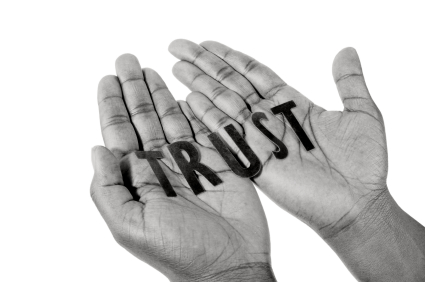It’s time to reassess Twitter. Is it a conversation or just another channel in the communications tool box? What’s the value proposition today? Has it evolved for the better or what? I’m looking for your help in answering those questions.
For those of us in the trenches; e.g. conveying to busy (or non-busy for that matter) clients that the value of Twitter is found in having conversations on topics that interest mutual parties, the real test is in not simply “suggesting” that there IS value, but rather being able to help them make that happen. And, before that can happen they want to know what kind of return on their investment they can expect. That’s a little more challenging to explain, especially when there are so few examples and my own numbers don’t really add up.
Twitter By the Numbers
Indulge me in more personal terms. I am turning the corner on my second anniversary of participating on Twitter (20 months). I have 473 followers; I follow 437 people, 14 listed. (I could have more, but I have plenty of excuses why I do not.) I have 650 Tweets and 140 direct messages. There are pages of retweets of my stuff by others but to get that number I’d have to count the @jaynenavarre Tweets and that’s tedious. I’m lousy at math so I won’t even attempt to calculate the numbers specifically. But, generally speaking, considering the number of Tweets and DM’s over 20 months, my exposure has been 39.5 times a month. Multiply that by the 473 followers and the number of times my Tweets have been retweeted by them to their networks that expand beyond my own tiny one and that’s significant exposure; certainly more than I could ever hope for in the bricks and mortar world. What’s not to like?
Exposure vs. Conversations
Well, taking all that exposure into consideration, the only “conversations” I’ve had on Twitter can be counted on my fingers and toes. Except for the DM’s that are primarily between people I have met personally and have their email address where Twitter just adds another layer in those conversations, my live conversations on Twitter are RARE.
With one caveat. Twice in those two years I have had “rock star” contact. Once with Shel Israel talking about his book Twitterville and once with Jason Calacanis. Both are now following me (and thousands of others) But they never talk to me anymore. 🙁
Calacanis, being the most coveted follower, elicited this “email” to my friend (Heather Milligan of the Legal Watercooler) about the big day….
WaHOO! I’m in the big leagues now, baby…JC is following me on Twitter. Note below he has 77694 followers and is only following 1757! Them are some sweet odds. I sent a Tweet @jason about the Murdock may kill Google thing. It caught his attention. Waiting for his reply/discussion. 🙂
I’m still waiting. (No disrespect to Jason he has added a significant dimension to my perspectives via his email blasts on various issues and he’s a busy guy.)
Through Twitter I have met a half dozen very interesting attorneys and a few new marketing professionals that have taken the time to have a non-DM conversation once or twice. Socially and professionally speaking those contacts are worth the 9100 characters I’ve typed over the last 20 months. From a business development perspective, I have no idea what my followers think of me, but I can assure you that I cannot directly link my Twitter investment to the growth of my business. And that’s where I need your help!!!!! No more soft stuff. I need the FACTS. Are you having conversations on Twitter? Where are they going? What is your time worth? Is it okay just to be social for social sake? Is that the value prop?
The Evolution of Twitter
In the beginning it really was a potential conversation, but currently, at least for me, my Twitter stream has evolved into an article-sharing database, a customer service outlet (I go there first when I need help with Comcast, Wachovia, Best Buy, or Apple) and a way to keep up with the news. As an article-sharing database it sort of, but not really, replaces Delicious, the social bookmarking site that I use to search for recommended web reading. As a customer service call to Comcast, it really rocks! You wouldn’t believe it. They are all over it when you Tweet something serious about their performance. (Reputation management!)
In my view, beyond the touchy feely—let’s get engaged, be transparent and collaborate rationale (Don’t get me wrong, I love social media and think Twitter is valuable subject to individual interpretation) Twitter has two aspects that dominate and make it hard to pin down.
- It is very serendipitous. I can’t read every tweet and I can’t keep up with the public time line. So, it’s kind of like closing your eyes and pinning the tail on the donkey. When I go to Twitter, I open my eyes and see what I’ve pinned. E.g. I browse the latest Tweets in my stream and happen upon random information, but rarely conversation. Sometimes I comment. (Lists are an improvement but they’re still a bit awkward.)
- Got conversation? (Granted, this may be my fault as I struggle with work and social balance.) I see a lot of pushing articles, pushing blog posts, products, giveaways, and news. (This is not a bad thing, just another channel and may be where it’s evolving.) Recently I re-tweeted a provocative post by John Cass, a blogger whom I do not know. Apparently he’s a really popular bloger and has thousands of followers. He direct messaged me asking me to add any thoughts as a response. That’s the right spirit and I’d certainly be smart to engage in that conversation, but at the time I found it I was swamped with work. Going back in to find it and connect my thoughts may be a bit of work. (He is a new follower of my Tweets though so who knows?) Ergo, you get back what you put in.
How can I, in all honesty, recommend to a client something that I can’t do myself? There’s probably a simple answer to that, only I’m too nearsighted. I need your help.
When is the last time you had a beneficial discussion/conversation on Twitter? I’m sure you have. If you can share some tips or stats on your actual experiences that would be helpful for me. Or, are you just using it to PUSH information? That’s not a bad thing, per se. But, is the purpose of Twitter changing? What is Twitter, really?
![Reblog this post [with Zemanta]](http://img.zemanta.com/reblog_e.png?x-id=28004dd9-6ffb-4223-b4f7-53443e44704d)





Greetings Jayne! I saw Heather Milligan’s tweet about this post, and since I love Twitter, I thought I’d share why it is personally valuable to me.
While I actually have gotten a client on Twitter (actually I answered a question on LinkedIn and then developed a client relationship with the attorney on Twitter), I don’t regard it as strict business development. I do think that Twitter is excellent for marketing, credibility building, professional development and expanding one’s network.
I use it for:
(1) education and information gathering; (2) winnowing down the vast resources of the internet into what is actually worth looking at (by my criteria); (3) projecting my expertise to thought leaders and my professional community at large; and (4) developing relationships with interesting professionals who I might not otherwise have had the opportunity to personally engage with.
I probably love twitter because I don’t do it right. I do not give a hoot how many followers I have. If someone follows me, I look at their tweet stream and if there is no relation to my professional life, I block them. If there is, I follow them back. If they add value to me and interest me in the first week or two, I keep them — otherwise, I unfollow. So my tweet stream has around 200+ people and over time I have learned to take in that amount of information. By being selective, I have 200 smart professionals screening the internet for me, and then recommending worthwhile reading and ideas. All day long. Fabulous! I am continuously intellectually stimulated and it does not require the amount of effort it did before Twitter.
Then, because I have a manageable number of people in my tweet stream, I have begun to develop relationships with them — via twitter, then email, then on the phone and sometimes, ultimately, in person. I talk to someone I met on twitter at least once a week, and when I travel I usually share a meal with one of these professionals. These are 200 senior, thoughtful people who are engaged in legal marketing and social networking who are enriching my life everyday and willing to share themselves and their knowledge and their contacts.
I have always reached out to professionals across the country whom I considered worthy of mentor status, but in the absence of something like Twitter, maintaining those relationships takes a lot of work. With Twitter, it is automatic.
Secondly, now these people know what I do, I have relationships with many of them, and they have provided referrals, opportunities to collaborate and recommended me for professional presentations, etc. I am certain that more opportunities will arise from these connections.
Isn’t this what we used to call ‘marketing’?
Do I jump in there today and tell my attorney clients to get on Twitter? No, not unless they are inclined toward social media and are in small or solo practices, or in practices that particularly lend themselves to twitter today, like IP, media law, etc.
But I DO recommend that my in-house marketing and biz dev clients understand and be adept at using social media platforms. That way, if and when Twitter (or some other microblogging platform) becomes more necessary for attorneys, the in-house support will be there. Beyond planning for the future, twitter is an excellent way for in-house marketers to stay current on their professional reading and have topical articles to share with attorneys and management when appropriate.
So there it is — my valentine to twitter. 🙂
Amy, Wow! Thanks for sharing in such detail. Your experience seems pretty similar to mine. And fact is, It actually tracks like traditional marketing activities; e.g. it’s hard to put a number (ROI) on attending a benefit, political fundraiser or a cocktail party as it’s pretty much just “seeding” the field. It takes follow up and multiple touch points to build the familiarity and trust necessary to engage in a business transaction. Social settings are conducive to ROI numbers so it behooves me why people think being social online is any different. Analytics, influence metrics and rankings have some value and if you can pull them all together in a way that makes sense. It’s tough though because you need to ccount for not only name mentions but also keywords you use frequently and that gets a little complicated. Like all research/data, it’s not a simple process. Oh well, a discussion for another post. Maybe Ann Lee Gibson over at Law Firm Competitive Intelligence blog can chime in on this.
Glad to hear it’s working for you and all is well. If you ever come across someone who’s got data that makes sense, I hope you’ll share it here on the VMO!
Jayne
Your experience seems pretty similar to mine. And fact is, It actually tracks like traditional marketing activities; e.g. it’s hard to put a number (ROI) on attending a benefit, political fundraiser or a cocktail party as it’s pretty much just “seeding” the field.
================================================
lawyer marketing